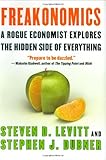Vernon God Little
Vernon God Little

Author: DBC Pierre
Year: 2004
Publisher: Harvest Books
ISBN: 0156029987
**WARNING**: There might be allusions to the story below. Don’t read any further if that bothers you.
Someone (who, incidentally, had //not// read the book) described the book to me as “a cross between //Catcher in the rye// and //Terry Pratchett//”. The reading guide at the back of the book itself says the book may seem like a cross between //Catcher in the rye// and //Adventures of Huckleberry Finn//. As you can see, the common theme here is [[wp>The_Catcher_in_the_Rye|the catcher in the rye]], so you can imagine that this is sort of a coming of age book, and sort of a depressing book (depending on the type of person you are).
Its a Booker winner, so much has already been written about Vernon God Little. Its a sharp, witty satire on teenage, violence, American media and sexuality. The book is a narrative in first person (just like Salinger’s book) and the protagonist has a distinctive way of talking (again, just like in CITR). This is a story about a 15 year old boy — Vernon Gregory Little — who is a witness to a high school murder incident and how he gets entangled in the chaos that ensues afterwards. As events unfold, he flees to Mexico (and herein lies the semblance to Huckleberry Finn’s adventure). Its a book about his journey as he tries to figure out his fate.
Though I took a really long time to read it, its a short book. I found the book depressing in parts, but its usually pretty funny and sarcastic. I //was// a little disappointed by the ending though, which is surprising, because its actually a happy ending. But its a refreshing book, and definitely worth a read!



